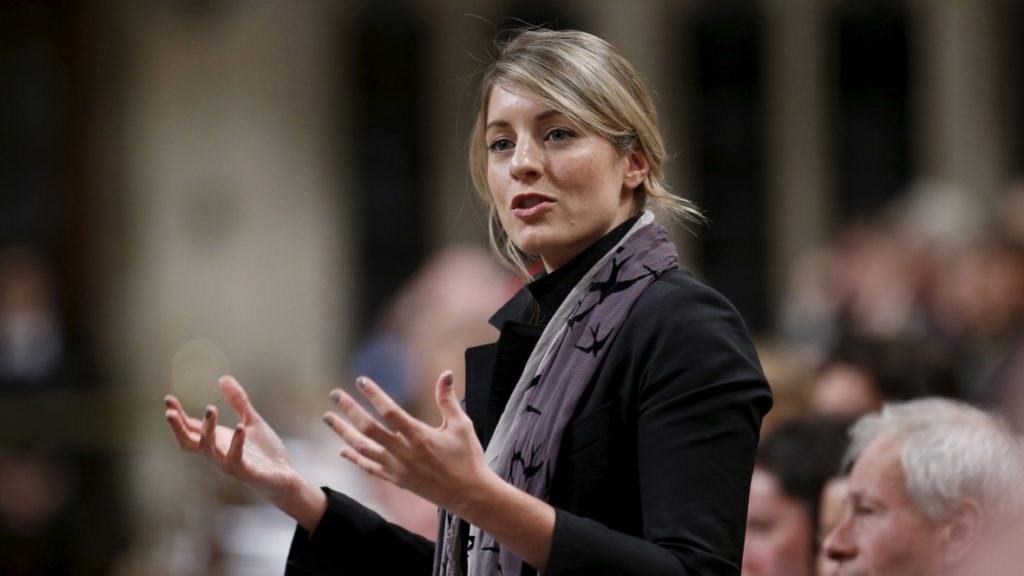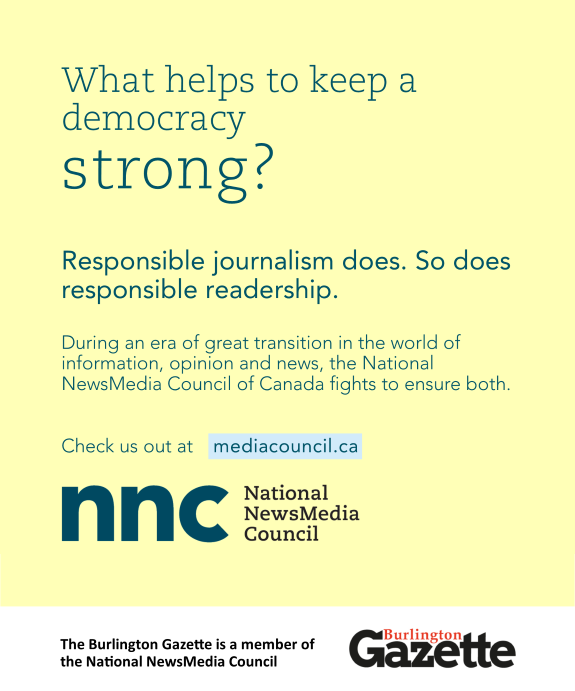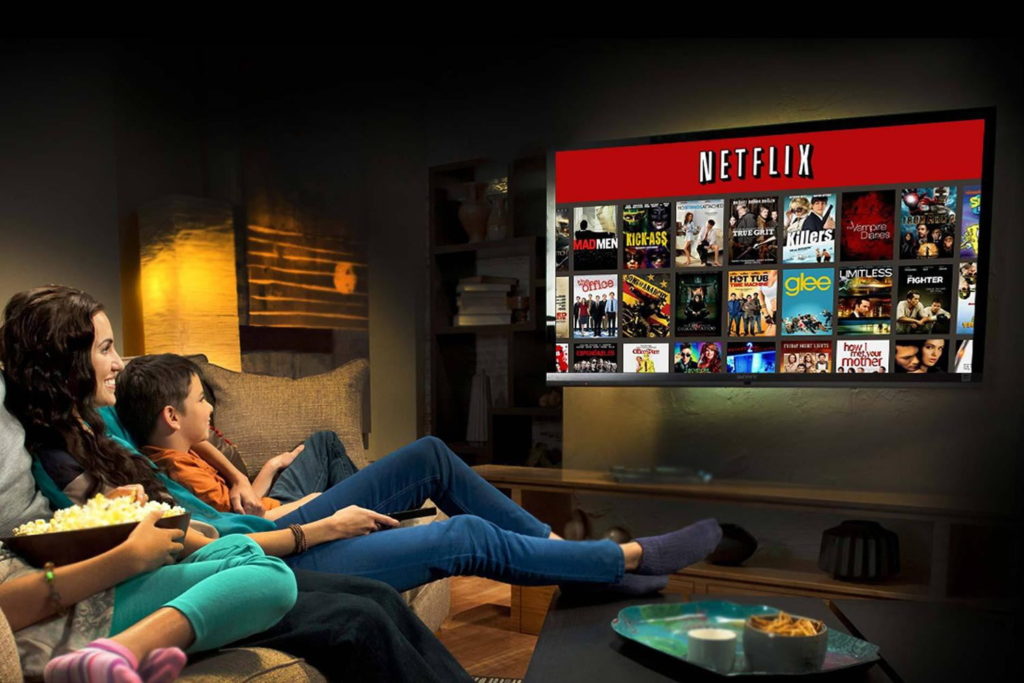 By Ray Rivers
By Ray Rivers
October 15th, 2017
BURLINGTON, ON
A couple of weeks ago Canada’s Heritage Minister, Mélanie Joly, announced the country’s new creative industries strategy. There was more money for Canada’s creative sector but for the most part she and her announcement have largely been ignored or panned.

Heritage Minister, Mélanie Joly
One reason could be how she has been dealing with Netflix and internet streaming more generally. With virtually unlimited global access through the internet, Netflix and Amazon can be broadcast right into anyone’s home and not be subject to the (HST) as are the TV and cable broadcasters. And by the same token these streaming companies can escape Canada’s outdated domestic content rules.
So the government wrangled some Canadian content into Netflix by getting the US based company to invest half a billion dollars over the next five years into Canadian productions. Details are scarce as hen’s teeth, leaving the impression that this is a deal still at the concept stage. But what about the taxation issue?
 And what was really missing from her announcement is an indication as to how the government plans to deal with the evolution taking place with the daily news. The dailies are a dying breed as advertising revenue, circulation and employment are all in a downward spiral. And once the papers go, so too will the press associations which they support, the ones which provide front-line reporting of events upon which we should all depend.
And what was really missing from her announcement is an indication as to how the government plans to deal with the evolution taking place with the daily news. The dailies are a dying breed as advertising revenue, circulation and employment are all in a downward spiral. And once the papers go, so too will the press associations which they support, the ones which provide front-line reporting of events upon which we should all depend.
Some broadcasters like our own CBC utilize their own staff reporters for many stories, and don’t rely solely on the Canadian press service. But broadcast news is also facing challenges, especially in the US, where the president has called what the networks report as ‘Fake News” and has threatened to pull their broadcasting licenses.
Of course he can’t really do that, given the arms length relationship between him and them, and those in that country who do manage media policy. And besides there is that constitutional first amendment. But what he has done with his bluster is erode the public’s confidence in conventional news media and create confusion about what President Trump’s people have called alternate facts.
Those alternate facts have abounded on social media, particularly given the intrusion into the US domestic social networks by the Russians. Even if we disregard those kinds of malicious and fraudulent cyber postings as transitional, there is a plethora of blogs and opinion pieces which masquerade as facts, and serve only to distort the truth.

American President’s used to hold “Fireside” chats and talk to the public. Donald Trump chooses to tweet and tweet and tweet.
Trump, is reported to only watch the Fox News TV channel, a network many mock for its misnomer of a moniker – ‘fair and balanced’. And he prefers to release his own news reports via Twitter from the peace and comfort of his inner sanctum in the White House, rather than at a news conference where reporters can clarify and ask questions. After all, he is the president.
Democracy resides on a three legged platform. Universal suffrage is one leg, the freedom to run as a candidate another. And the free communication of accurate information makes up the final support. Facts are critical, and it is fair game for opinion writers to interpret to their hearts’ content, within the bounds of reasonableness. But there is no such animal as an alternate fact.

Does Netflix dominate?
Canada has been well served by our traditional mixed media, a government owned public broadcaster provides balance to the private paper giants – and they in turn provide a check that the GBG/Radio Canada sticks to the message and doesn’t get seduced by who is providing the pay cheques. Perhaps that is why consideration of this aspect of our communications sector escaped the Heritage minister’s attention.
But even the giants are hurting and there are things a government can do help slow down the bleeding, such as greater advertising purchases. And fair taxation is just as important among the internet and other media as it is for small incorporated business owners.
That is something our negotiators need to keep in mind as they plod their way through these difficult NAFTA negotiations. After all, as the old adage goes, news is what’s in the newspapers.
 Ray Rivers writes weekly on both federal and provincial politics, applying his more than 25 years as a federal bureaucrat to his thinking. Rivers was a candidate for provincial office in Burlington in 1995. He was the founder of the Burlington citizen committee on sustainability at a time when climate warming was a hotly debated subject. Tweet @rayzrivers
Ray Rivers writes weekly on both federal and provincial politics, applying his more than 25 years as a federal bureaucrat to his thinking. Rivers was a candidate for provincial office in Burlington in 1995. He was the founder of the Burlington citizen committee on sustainability at a time when climate warming was a hotly debated subject. Tweet @rayzrivers
Background links:
Turkey Talk and Rookie Ministers – Canadian Content – Canadian Content Updating – Canadian Press – Periodical Fund – Newspaper Ask –
Media Funding – Faking News – State of US Media – Threat to First Amendment –


















So, not only are my taxes going to be used to support a television/radio network I neither look at or listen to, now you want my money to be used for “government advertising”; meaning good news press releases, sometimes called propaganda. No thank you. Let the marketplace sort itself out. The best defence against “fake news”, as it is called, is a good education that involves a healthy dose of training in critical thinking.
Solid column, Ray. Thank you.
I share your very real concerns about much you mention, particularly the ill-health of local reporting. Believing that mal-, mis-, and non-feasance can occur at all levels of government, seeking the continued nurturance of a society of humanitarian and just choices, our interests pivot on indepth investigative reporting at all levels.
Let us campaign for the survival of a deep and open press.
BB
You are a fool if you believe the CBC if fair and balanced or does not report on whatever agenda the government of the day has decreed for it. The CBC hired an actor from the east coast to go to Alliston and sell “Make Canada Great Again” hats and “White Power” Shirts to test Canadians tolerance in Kellie Leitch’s riding. Yep, sounds balanced to me! The only solution to that is to sell the CBC and let private companies report the news as they see fit. If they aren’t being fair and balanced then people will stop watching and they’ll lose money or they’ll change just like newspapers. The Government can’t do that. I stopped believing what the CBC was reporting years ago but Netflix is not a news organization. Its nothing but entertainment for coach potatoes. To tax and regulate it would be no different then taxing books that come from over seas. The only difference is that Netflix makes a lot of money hence that’s why the government wants to tax it. They want to regulate the content to justify stealing from Netflix. The best solution is to stop taxing and regulating all entertainment and let the market sort it out. Why do I need the government telling me what I am supposed to watch. Don’t we already pay enough taxes.
This is fascinating as it provides me with information on how programming crosses international boundaries, and all the considerations therein. I do not get NETFLIX and am aware only of their offerings in the U.S. but not of the content. Nor am I aware of the pressures on sponsors and producers. They seem, at least to me, to be independent – so far – of governmental pressures. That is sure to change as the Trump regime attempts to clamp down on programming and licensing, trying to limit content to what the Ministry of Truth will allow.
I can say that through the 1970’s I often relied on Canadian programming and productions to introduce topics to my college classes. I always felt, but without hard evidence, these had the most integrity for truthfulness and accuracy. Occasionally seeing various programs since then, I’ve had no reason to change my mind.
Great insights Ray!
I worry about the diminishing state of journalism both in Canada and abroad. Publications such as the the Toronto Star and Toronto Sun, and increasingly the Globe and Mail, are filled with overt polemic and silly “human interest” stories that are nothing but mindless fluff and lacking in substantive value. So much of what is posted on the internet in the name of “journalism” is nothing more than poorly disguised political opinion masquerading as reporting. Objectivity and content are sadly lacking. As for television news reporting I’m tired of watching newscasts suffused with entertainment reporting or cute animal stories.
I remember a time when we had incisive, tough-minded reporters such as Bob Reguly, Charles Templeton, Frank Drea and Peter Desbarats. Sadly, they appear to be part of a dying breed.